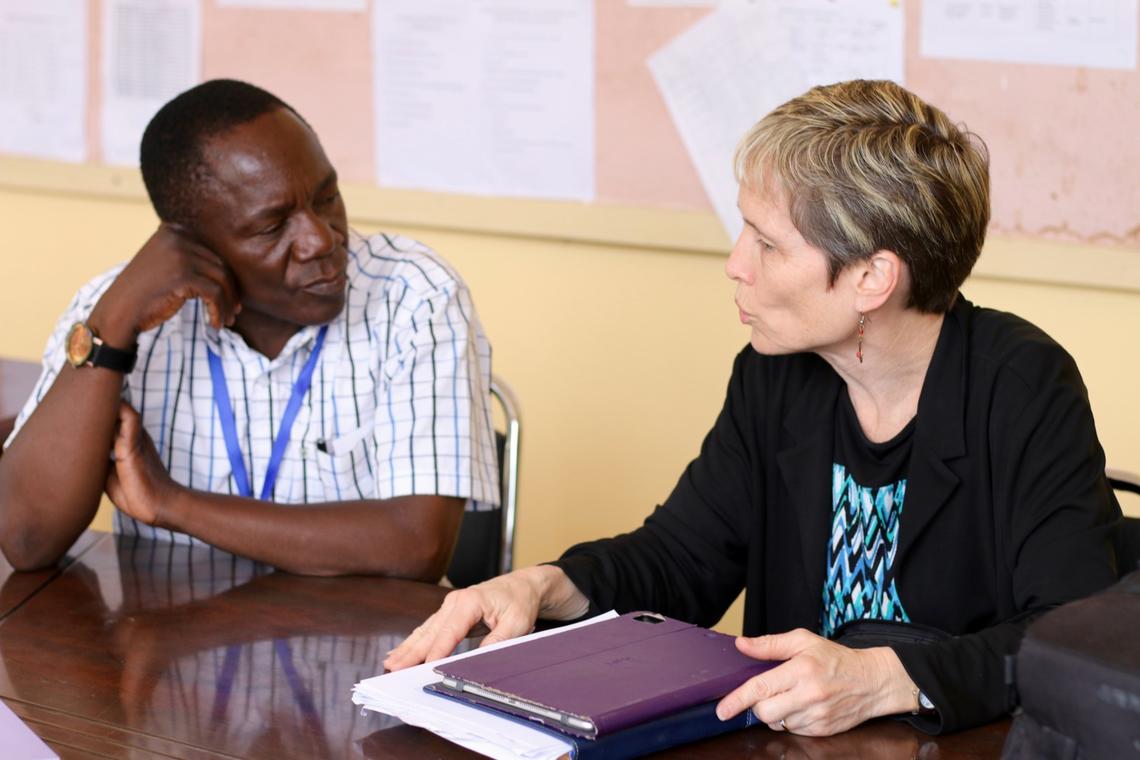Models of Community Engagement
Activating communities through academic diplomacy
“In a society that embraces pluralism, differences are not seen as threatening. They present opportunities to learn from one another and enrich our lives and communities with new perspectives and ideas.”
Universities have a unique opportunity to play a diplomatic role in community, as an honest broker and a curator of trust. Academic diplomacy facilitates effective collaboration and increased understanding among stakeholder groups to find innovative solutions to the vexing or pressing issues of our time. Our office’s approach to community engagement showcases scientific humility, curiosity and service: on one hand, we role model respectful dialogue in a polarizing world; on the other hand, we slowly influence healthy behaviours and public preference about evidence based health and health care. In turn, we influence politics and policy - to help promote health equity and greater well-being in the vulnerable communities we engage.
By viewing community through a pluralism lens, we draw on multidisciplinary, multisectoral, and pan-industry assets on our campus and in our community. For the Cumming School to be a community citizen, our team of faculty and staff must first, view themselves as citizens, and second, activate citizenship behaviours on campus and in community.
The following community engagement models are supported by our office, and are implemented through the development of programs, initiatives, opportunities, community tools and staff/student education:
Civil Society Forum
The Civil Society Forum activates civil society and scholars to solve societal challenges that are too complex to be solved by government alone. This model of engagement activates community’s plurality of voices across industries, sectors and disciplines, by using methods that help us translate knowledge to the most active and representative members of society, but bimodally, also help scholars learn from experiences of those members to inform scholarly questions to best serve community. A successful initiative that applied the Civil Society Forum model was the Interrupting toxic Stress in Indigenous Youth project.
Policy Symposium
The Policy Symposium model invites scholars, policymakers, civil society and business to ground dialogue in best-evidence. By presenting issues and ideas through a scholarly approach, this model can build cohesion and understanding among various stakeholder groups about a common starting point. A successful initiative that applied the Policy Symposium model was A Healthier Canada Through Effective Nutrition Policy.
Public square
The Public Square uses an evidence-based approach to explore policy issues among private citizens, civil society, business and scholars, illustrating both the plurality and nuance of participant perspectives. This model seeks to promote understanding even when we don’t agree, and in doing so, begins the process of unleashing creativity by reconciling difference to co-create innovative solutions in our common interest. Cannabis and the Public Good: Responsible Industry and Cannabis Legalization was an even that successfully utilized the Public Square model.
Social innovation
Social Innovation layers onto other forums by applying best evidence in entrepreneurial thinking to generate new value-creating products, policies, programs or services. By bringing various stakeholders together into a model of co-creation, we create new value by reshaping conflict into creative energy. The Gender Equity Hackathon was an event that successfully utilized the Social Innovation model.
Quiet diplomacy
Quiet Diplomacy acknowledges trust is often best built quietly, outside public view, and occasionally even without paper trail. Objectives may vary from preventing or resolving intergroup conflict or laying foundation for future collaboration. By being outside of the public view, this model helps create a safe and productive environment to understand different perspectives and bridge extreme views. A successful initiative that applied the Quiet Diplomacy model was the Community Water Fluoridation project
Community development
Community Development engages in respectful, collaborative, mutually beneficial dialogue with community and health service providers. Incorporating local knowledge informs both supply and demand factors leading to healthy and compassionate resource allocation.

Looking for resources
Access resources for students, staff and faculty – including forms, funding opportunities and more.
Indigenous, Local and Global Health Office | Health Sciences Centre G802 | 3330 Hospital Dr NW | Calgary, Alberta | T2N 4N1 General Inquiries
Director, Public Policy and Strategic Partnerships
Dr. Aleem Bharwani
ambharwa@ucalgary.ca,
403.210.6196.
